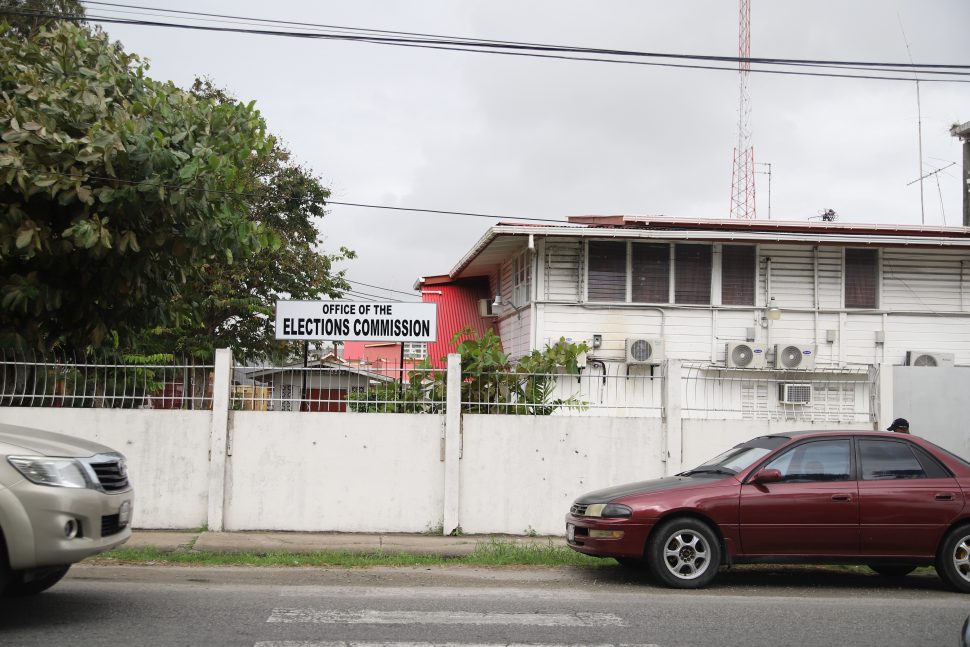The Guyana Elections Commission (GECOM) has increased its field staff in order to complete the national house-to- house Registration (HtH) in three months.
This is according to attorney Roysdale Forde, who is currently, on behalf of Chief Election Officer Keith Lowenfield, defending the operationalisation of the exercise before acting Chief Justice Roxane George-Wiltshire.
Asked by Stabroek News how viable the three-month timeframe of the exercise is considering the last exercise in 2008 took twice as long, Forde said “I am advised by the Chief Election Officer that there are a number of persons employed….about 9,000 persons. So more persons are employed this time than previously.”
The timeframe for the exercise is crucial as the Caribbean Court of Justice has said that elections have to be held within three months of when it ruled on June 18th that the motion of no-confidence had been carried against the government on December 21st, 2018
The Guyana Elections Commission (GECOM) is currently engaged in the process of house-to-house registration, which Order 25 of 2019 declares should be completed within three months, half the time budgeted for in a proposed work plan submitted in 2018 and half the time it took to complete it in 2008. GECOM has not explained how it arrived at three months for the current exercise compared to the original projection of six months.
Attempts to question Lowenfield, who was present at court yesterday, proved futile as he refused to speak with media while a work plan submitted as part of the exhibits in the case shows the exercise is scheduled to run between June 2 and September 29, 2019.
Like the 2008 work plan, the timeline, July to October, published for the current HtH does not cater for the claims and objections that will follow the registration nor does it cater for the perfecting of any errors such as duplicate fingerprints.
Forde explained to reporters that Claims and Objections is scheduled to occur outside of the July 20 to October 20 period stressing that this period will allow any persons not registered during HtH to be added to the National Register of Registrants database.
He argued before Justice George-Wiltshire that claims the current process will “deregister” persons were not accurate.
“It is not a process to exclude any
person. The law allows for claims and objections. The law allows after the preparation of a new list a claims and objections period so that any person who has failed to be registered can do so,” he repeatedly stated.
The argument that persons will be excluded was posited by former Attorney General Anil Nandlall on behalf of political commentator Christopher Ram, who brought the case against HtH registration.
Ram’s case is that the registration exercise is in violation of the letter and spirit of the Constitution and the judgment and consequential orders made by the Caribbean Court of Justice (CCJ) in the consolidated cases stemming from the passage of the no-confidence motion against government last December.
He also argues that the exercise will disenfranchise persons who are on the list but may not be at their place of residence at the time of registration especially since it proposes to discard the current list of registrants once a new database is completed.
“They are proposing to register people de novo which is from the inception. The law does not provide for that. Once you are on the list you can only be removed from the list on certain grounds which the law states…so you cannot whimsically and capriciously be taken off the list for example if you are not at home when the registration officer comes. The constitution does not provide residency as prerequisite for voting,” Nandlall stressed, while adding that to take persons already registered off the list is to deny them their constitutional right to vote.





